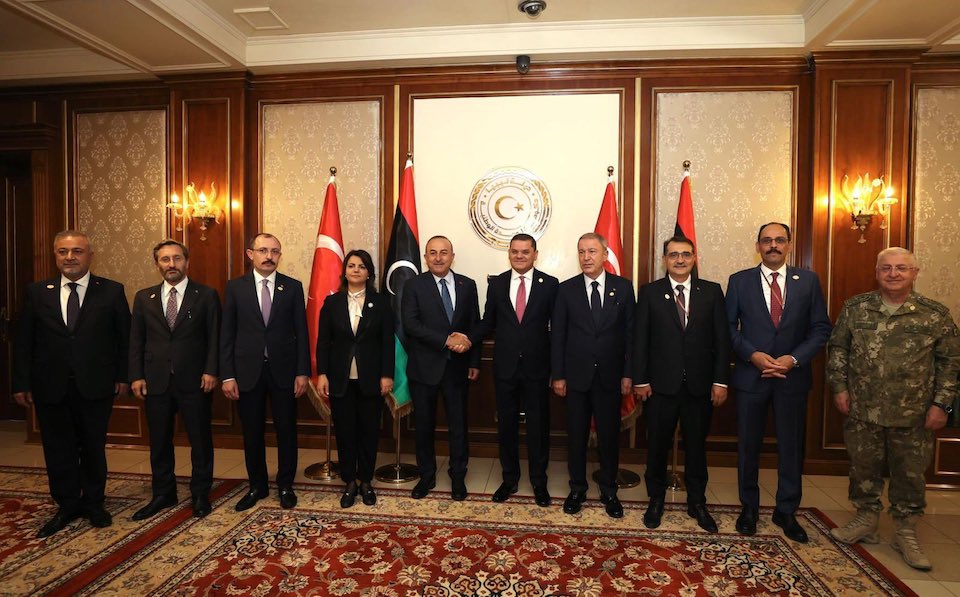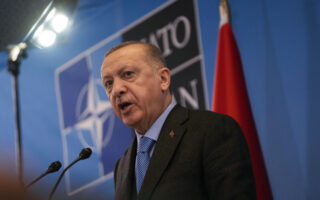Ankara ratchets up tension via Libya
Agreement on hydrocarbons exploration directly infringes on Greece’s maritime rights

The signing of a preliminary agreement between Libya and Turkey Monday, allowing the latter’s oil rigs and research ships to search for oil and natural gas on Libyan soil and in the country’s maritime exclusive economic zone (EEZ) threatens to deepen a crisis in Greek-Turkish relations by ignoring Greek islands, notably Crete, standing in between non-neighboring Libya and Turkey.
The agreement, signed by the prime minister of one of Libya’s two feuding governments, Abdul Hamid Dbeibah, and Turkish Foreign Minister Mevlut Cavusoglu, provides for future support for Turkish drilling on land and sea for hydrocarbons. Most importantly, it defines as Libya’s EEZ that agreed upon by Turkey and the Tripoli-based government in a highly contested memorandum signed in November 2019 and denounced by Greece and Egypt, the two countries standing between Libya and Turkey.
Monday’s agreement was denounced by the Libyan Parliament, based in the eastern city of Benghazi, and the Parliament-appointed Prime Minister Fathi Bashagha, who declared that signing such a deal was only “the inherent right of an elected authority.”
Libya was supposed to hold elections in 2021 that would result in a unified government and end a bloody east-west conflict, but Dbeibah canceled the elections.
The agreement makes the Turkish Petroleum Corporation (TPAO) a significant player in a market once dominated by French and Italian corporations. It would also, potentially, allow Turkey to extract concessions from the Tripoli government to explore in areas south of Crete, directly challenging Greek rights.
Greece’s Foreign Ministry reacted strongly to the agreement:
“Greece has sovereign rights in the area, which it intends to defend using all legal means,” it said in a statement. It reiterated Greece’s position that the Turkish-Libyan “memorandum” of 2019 is illegal, invalid and nonexistent. Therefore, no one has any right to invoke it.”
Foreign Minister Nikos Dendias briefed the ambassadors of the United States, George Tsunis, and France, Patrick Maisonnave, on developments Monday.
Dendias will travel to Cairo Sunday to confer with his Egyptian counterpart, Sameh Shoukry. Egypt and Greece have signed an agreement delimiting their respective EEZs.





